PENGUIN  CLASSICS
CLASSICS
THE PENGUIN BOOK OF OUTER SPACE EXPLORATION
JOHN LOGSDON , known as the dean of space policy, is one of Americas foremost experts on space policy and history. In 1987 he founded the Space Policy Institute at George Washington University, which he directed until 2008. He is a former member of the NASA Advisory Council, and he served on the Columbia Accident Investigation Board in 2003. He is the editor of a seven-volume series, Exploring the Unknown: Selected Documents in the History of the U.S. Civil Space Program, and his books include John F. Kennedy and the Race to the Moon,After Apollo?: Richard Nixon and the American Space Program, and the forthcoming Ronald Reagan and the Space Frontier. He serves on the board of directors for The Planetary Society, as well as several other prestigious space-related organizations and journals.
BILL NYE is best known as the host of PBSs Bill Nye the Science Guy. He is the bestselling author of several books, including Everything All at Once, and the host of Netflixs Bill Nye Saves the World. He is also CEO of The Planetary Society, the worlds largest nonprofit space organization.
PENGUIN BOOKS
An imprint of Penguin Random House LLC
375 Hudson Street
New York, New York 10014
penguinrandomhouse.com
Introduction, notes, and selection copyright 2018 by John Logsdon
Foreword copyright 2018 by Bill Nye
Penguin supports copyright. Copyright fuels creativity, encourages diverse voices, promotes free speech, and creates a vibrant culture. Thank you for buying an authorized edition of this book and for complying with copyright laws by not reproducing, scanning, or distributing any part of it in any form without permission. You are supporting writers and allowing Penguin to continue to publish books for every reader.
Making Humans a Multi-Planetary Species by Elon Musk. Used by permission of SpaceX.
Announcement of the First Satellite, from Pravda, October 5, 1957. English translation published in Behind the Sputniks: A Survey of Soviet Space Science by F. J. Krieger (Public Affairs Press, 1958).
No copyright is claimed on works of the United States Government.
LIBRARY OF CONGRESS CATALOGING-I N-PUBLICATION DATA
Names: Logsdon, John M., 1937 editor. | Nye, Bill writer of foreword.
Title: The Penguin book of outer space exploration : NASA and the incredible story of human spaceflight / edited by John Logsdon ; foreword by Bill Nye.
Other titles: NASA and the incredible story of human spaceflight
Description: First edition. | New York, New York : Penguin Books, [2018] | Includes bibliographical references.
Identifiers: LCCN 2018009281 (print) | LCCN 2018012899 (ebook) | ISBN 9781101993491 (Ebook) | ISBN 9780143129950 (pbk.)
Subjects: LCSH: Manned space flightUnited StatesHistory. | United States. National Aeronautics and Space AdministrationHistory. | Outer spaceExplorationHistory.
Classification: LCC TL873 (ebook) | LCC TL873 .P46 2018 (print) |
DDC 629.450973dc23
LC record available at https://lccn.loc.gov/2018009281
Cover design: Matt Vee
Cover photograph: Eric Long, Smithsonian National Air and Space Museum (NASM 2012-01668)
Version_3
Contents
THE PENGUIN BOOK OF OUTER SPACE EXPLORATION
Foreword
There have been hundreds of thousands of documents written for and about the U.S. space program, literally tons. They tell a story shaped not only by domestic politics and international political and military conflict but also by the strange desire deep within us to do and achieve something greater than ourselvesto glean something of the grand mystery of creation. That story is all here, in more than one hundred documents that shaped space history. With these few small steps, humankind became a spacefaring species. Many more steps are to come.
It might seem obvious looking back, but when spaceflight began, it wasnt clear which teamby that I mean which space program, sponsored by which government in which countrywould make it to the Moon first, and it certainly wasnt obvious how profoundly the world would be changed by humanitys ventures into space. In this book, John Logsdon uses the original source materials to take us on a journey from the shores of Florida to the farthest reaches of the cosmos. Did you know that prior to Yuri Gagarins flight, there were fears that a human simply could not survive being launched into space? Did you know the first guys to walk on the Moon filled out customs forms? After all, they had been out of the country for a few days. Did you know that President Nixon used the shuttle program to ensure votes for his reelection? Did you know that in 1993 it was Russian space leaders who suggested merging the U.S. and Russian space station programs? The evidence is here, in these documents.
The story of space exploration is marked by a series of turning points, a series of policy decisions. These decisions are documented well enough, but the key documents would be very hard to find, if you didnt know where to look. Dr. Logsdon does. Hes the dean of space history. He is the worlds foremost authority on which of the hundreds of thousands of documents hold the keys to knowing what and why significant things happened on Earth that influenced our presence in space. For many of us, the most significant event in the history of space exploration to date remains the first human landing on the Moon, which Neil Armstrong called one small step for a man, one giant leap for mankind. But in my view, there is little doubt that the next grand achievement in space will render the Moon landings both a giant leap for their time and but a small step toward the future.
The documents included here show that once the Soviet Union had sent its robotic emissary, the first Sputnik satellite, to the ultimate high ground of space, the world changed. Humans vied for access to and control over what would be a limitless frontier. The United States created the National Aeronautics and Space Administration (NASA), and the space race was born. From the beginning, there was conflict and tension between those in presidential administrations who wanted to achieve strategic or geopolitical objectives in space and those who wanted to explore space for the sake of science. As todays commercial space companies grow, this tension will manifest itself in new ways. Heres hoping these documents will help us find the best course forward.
At the height of the competition to get to the Moon, NASAs budget was ten times what it is today. It led to the return of the famed Moon rocks, which solidified our understanding of the age of the Moon, the age of the Earth, and the Moons origin. The astronauts gloves-on exploration, along with all sorts of other geologic evidence, led researchers to conclude that the Moon is made of a large ball of earthfrom the planet Earth. Our Moon is made of once-molten Earths crust. It is a profound insight. It gets at an answer to the age-old question: Where did we all come from?
However, for me it frankly pales compared with a single photograph that was taken before anyone set moonboot on the lunar surface. That Apollo 8 image has come to be called the Earthrise photo. That image changed the way everyone on Earth viewed our place in the blackness of space. Documents included here show how the decision to send Apollo 8 to the Moon was made. But did we need a human explorer, who wasnt even a professional photographer, to take that picture? Did we really need to send people there to collect rocks? The Soviet program did the same thing(s) with a series of robotic explorers. While the Soviet missions to the Moon are seldom remembered, the twelve Americans who walked on the lunar surface deserve their place in human history. As one 1961 document included here says, It is man, not merely machines, in space that captures the imagination of the world. On the other hand, our cosmic view has been enhanced immeasurably by the amazing images taken by robotic spacecraft silently hurtling through the cold dark and from above and upon the surfaces of other worlds. But what will our view of the cosmos be like after human explorers have set boots on the soil of Mars? Will we remember the noble robots sent before? Read on, and judge for yourself.

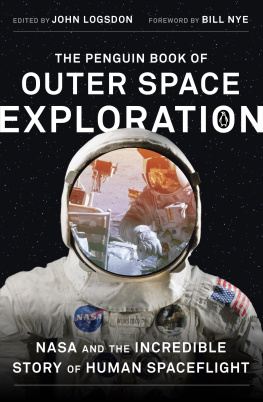

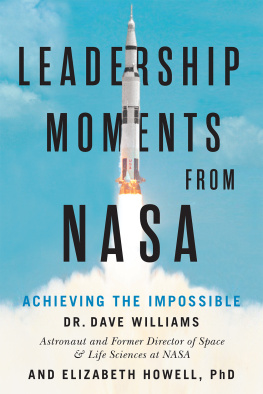
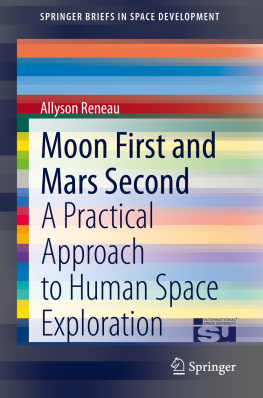
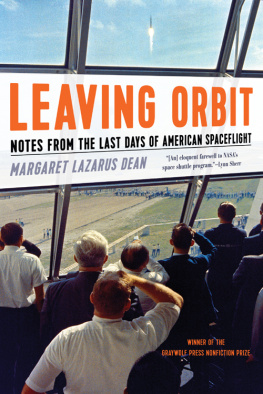
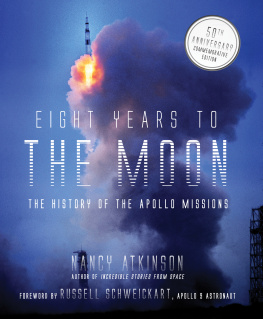


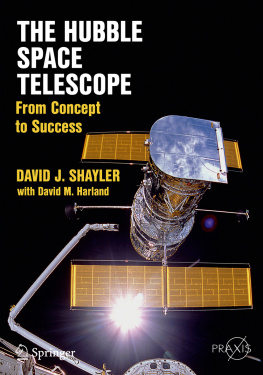

 CLASSICS
CLASSICS